When the students and their parents and families undergo the career counselling and guidance sessions for course or college selection, every student is seen as the protagonist in their story. If we think of their discussions when they select the subjects, courses, and the colleges—everything hovers around the student—their capabilities, their dreams or wishes, their skills, their career growth, and their life. I have seen it in many international universities’ counselling methods, and in my interactions with a few parents in India, in Chandigarh, Mumbai, and Gurugram.
The independent counsellors, career guidance agencies, and even the EdTech digital products in career counselling use a variety of psychometric tests, reasoning, spatial sense, perceptual aptitude, and other forms of evaluation to see a student’s personality and skills to draw conclusions about their career choices. This is a very limited-dimensional way to see the students’ capabilities in the context of their possible career choices.
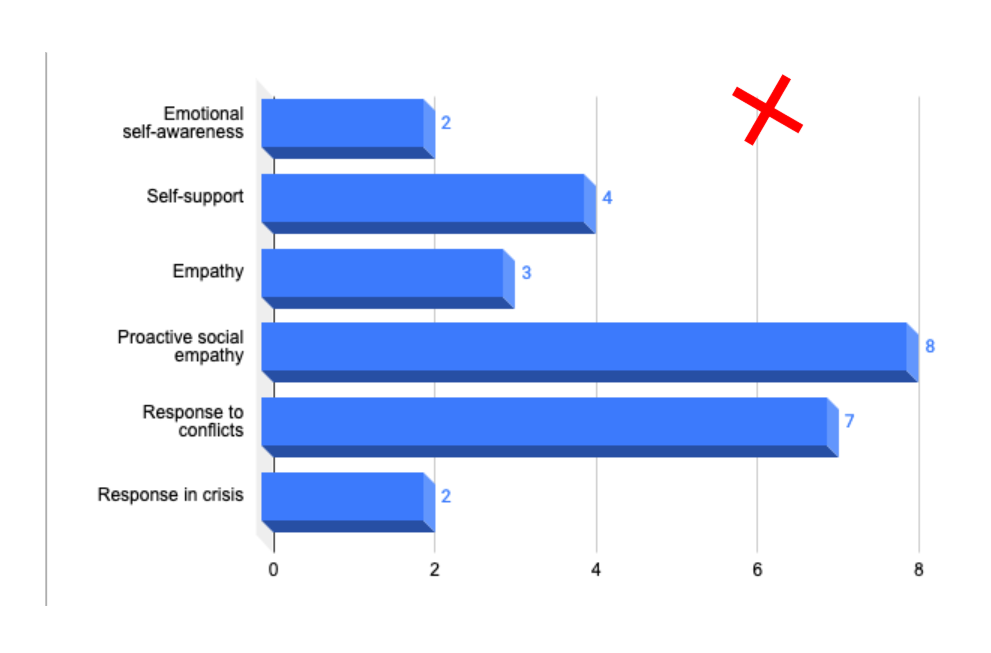
To talk about students’ careers in the language of their emotional quotient, aptitude, and what they should do to be more creative, entrepreneurial, or empathetic, or thoughtful, or analytical—this should not be the part of counselling process.
I spoke to a few families and many of them do not see the connection between these charts and what the student should be doing in their life. This analysis does not build the bridges between different nodes in the students’ mental maps, and hence they see a fragmented view of their career vision.
Career counselling is in building the students’ capacity
While working with the Steering team (see their website), we address the students’ career counselling concerns a lot more holistically. We help the students see their bigger story in a much broader lens. For example:
If a student says—“I want to learn programming, AI, data science.”, it does not convey anything about their career or dreams.
Steering builds their capacity to say—”I want to make intelligent dashboards and apply data science maps to study wildlife sanctuaries or forests because I want to _________ so that ___________. There have been a few incidents such as ______ and _________ that made me fall in love with ________.“
Our domain-intelligent theme mapping model gives weight to every word that students say in their interactions with us, to build the relationships, and assign scores.
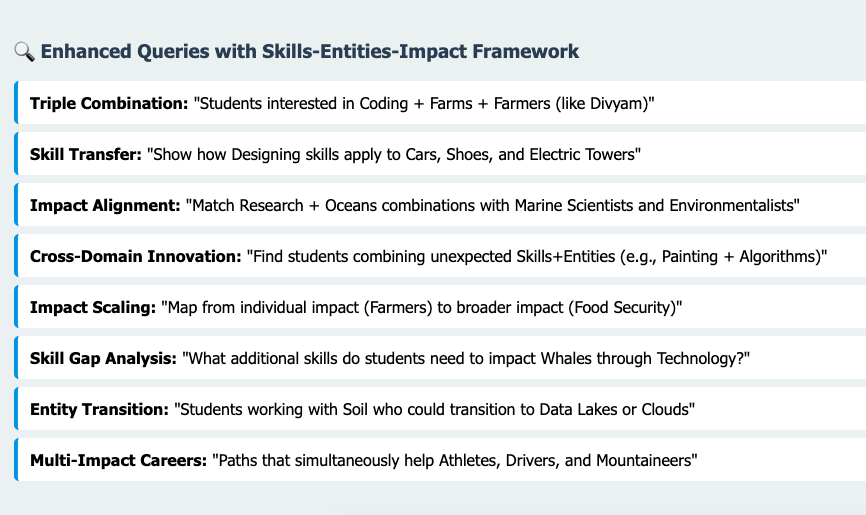
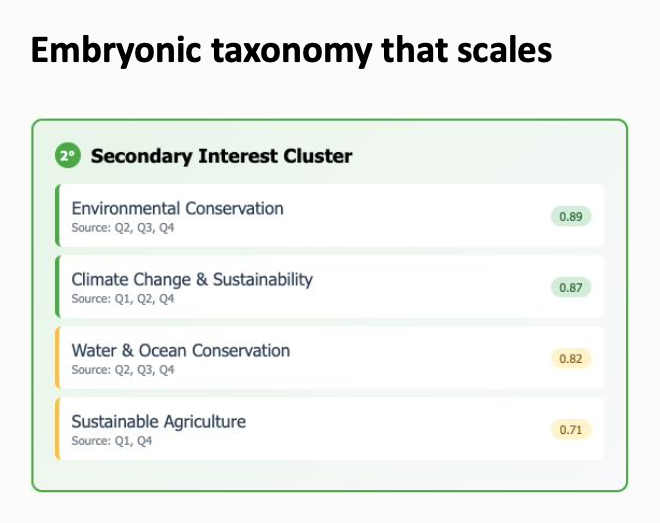
In our experience while speaking to a few students, we uncovered their hidden aspirations—the dreams that they would have rarely expressed in the traditional career counselling tools or services. For example a student mentioned that they want to understand the communication systems of the whales and dolphins, and we shared Dolphin Whispers.
Another student said that they were fascinated by birds and we introduced them to a library of resources, including careers as an ornithologist. One more student wanted to get into economics thinking for modern re-imagination challenges in the world, and we introduced them to Doughnut Economics (see this post on a few under-discussed careers options for students in India on the Steering website). If their mind have too many thoughts moving in different directions, we give them visuals to connect their thoughts.
We are talking about careers—students’ and their family’s investment for four years or sometimes six years in the college—look at the stakes.
It is not only about finding the right college, or that they should study economics because they like to talk about India’s economic policy. Or they should build robots or study medicines because this suits their personality and interests. Career discussions need to be much deeper, slow, and panoramic by the structure itself.
Students often idiolize the CEOs and the business leaders of the world. Shows like Shark Tank India, and the success stories of founders and CEOs on social media and the events and programs in the schools and colleges build this sentiment. This is not entirely new—every generation in the past might have wished that their kids could grow into the supervisors or project managers in the industrial age too. (This report by Kuder introduces us to the historical context of what brought structure into the career selection processes, communities, and discussions and decisions.
Our goal in Steering is to help the students and their families and loved ones design life much beyond finding the right college degree or course.

The hero in the students’ stories
As I mentioned earlier in this post, we should help the students see their bigger story in a different lens. A student is not the hero in their story.
When a student says that they want to study forests, that forest is the hero of their story. If a student says that they want to design a new category of robots to do complex procedures in surgeries, that robot is the hero. If a student says that they want to design dashboards for the farmers to help them in heir harvest goals, that farmer is the hero in that student’s story.
Our primary job is not to match their personality with a college or course. Our job is to build their capacity and their judgment, so that they can speak to themselves—be honest with their parents and loved ones, find their moments of convergence of ideas, and build the foundations of what makes a good life, for the right family dynamics.
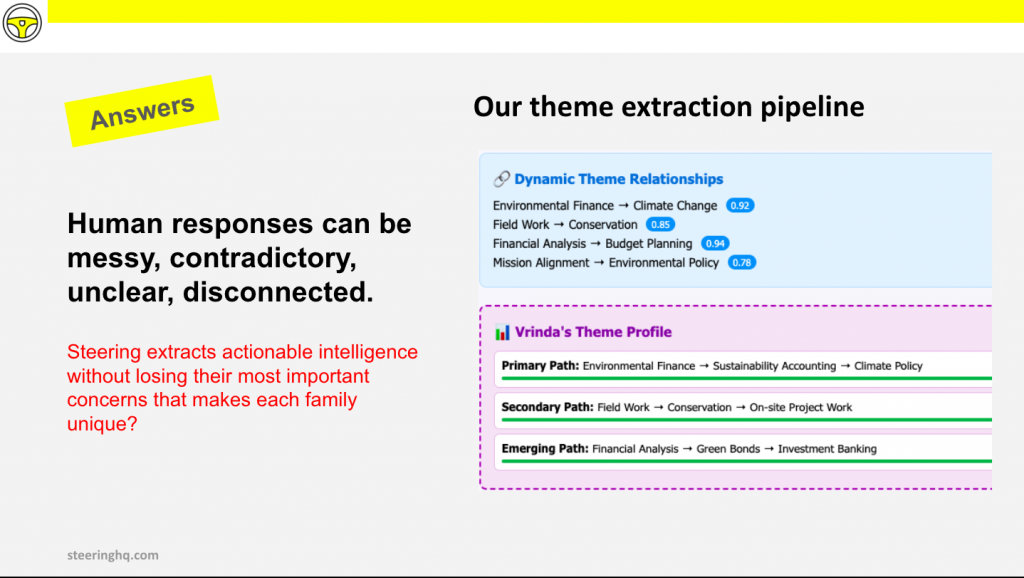
When a student joins a college, not all of them have a complete clarity of their goals or career path. In fact many of them are not sure of what to do with the degree as we see hundreds of discussions on Reddit and other communities. Steering prepares them for those situations, the alternative paths, and the secondary preferences. If you want to know more about the Steering, see the guides.
After working with a few students and their parents in Chandigarh, Mumbai, and Gurugram, we are happy to see how students think of their stories now—they can see the hero in their stories, a farmer, a brand, a dolphin, or even a radiology scan. This story is their strength now. Career counselling for students’ college and career selection has to be about their larger than life story.
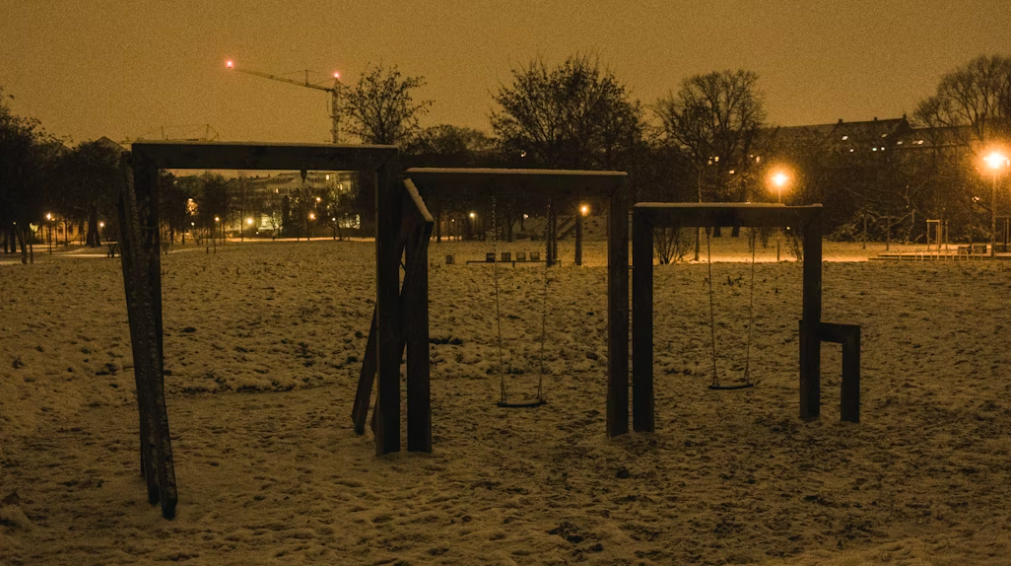
PS: A student’s career counsellor in Chandigarh did a quick review of our analysis that we share with the students and they said—”Your report has a lot of storytelling, I am not sure if this is the structure that students need or understand.” We take it as such a beautiful compliment. Students’ career counselling reports should not be only graphs or charts, or suggestions. Those families need stories, the plots in the stories to build convergence of their opinions and career preferences—data alone cannot build those conversations. This is the Steering advantage and the parents love the structure and the sentiment in our students’ career counselling and guidance stories.
